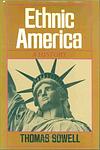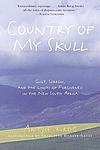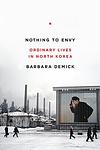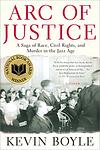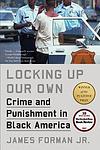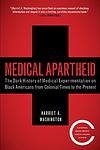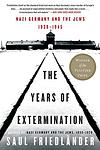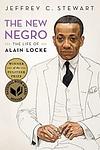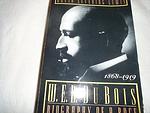The Greatest "History, Ethics" Books of All Time
Click to learn how this list is calculated.
This list represents a comprehensive and trusted collection of the greatest books. Developed through a specialized algorithm, it brings together 300 'best of' book lists to form a definitive guide to the world's most acclaimed books. For those interested in how these books are chosen, additional details can be found on the rankings page.
Genres
The category of "History" in books refers to the study and interpretation of past events, societies, and cultures. It encompasses a wide range of topics, including political, social, economic, and cultural developments, as well as the lives of individuals and groups who have shaped the course of history. History books can be written from various perspectives and may focus on specific time periods, regions, or themes. They aim to provide readers with a deeper understanding of the past and its impact on the present.
The "Ethics" category in books encompasses a broad range of works that delve into the philosophical study of morality, values, and human conduct. It explores the principles that govern individuals' behavior and the moral frameworks that shape societies. Books in this genre often tackle questions of right and wrong, justice and injustice, virtue and vice, as well as the ethical dilemmas that arise in various aspects of life, including business, medicine, technology, and personal relationships. They may present historical perspectives on ethical thought, analyze contemporary moral issues, or offer guidance on leading a moral life. This category includes texts from ancient philosophical treatises to modern-day commentaries, featuring works by ethicists, philosophers, theologians, and other thinkers who seek to understand and influence how we make decisions that impact ourselves, others, and the world around us.
Countries
Date Range
Reading Statistics
Click the button below to see how many of these books you've read!
Download
If you're interested in downloading this list as a CSV file for use in a spreadsheet application, you can easily do so by clicking the button below. Please note that to ensure a manageable file size and faster download, the CSV will include details for only the first 500 books.
Download-
1. The Souls of Black Folk by W. E. B. Du Bois
This seminal work is a collection of essays that explores the history and condition of African Americans at the turn of the 20th century. It delves into the issues of race, class, and the socio-economic realities faced by black people post-emancipation. The author employs a combination of history, sociology, and personal narrative to present a powerful critique of American society, highlighting the struggle for civil rights, the importance of black spirituals, and the concept of "double consciousness" - the idea of viewing oneself through the lens of a society that sees you as inferior.
-
2. Roots by Alex Haley
This groundbreaking historical novel follows several generations of an African American family, beginning with Kunta Kinte, a man captured in Gambia in the 18th century and sold into slavery in the United States. Through Kinte and his descendants, the narrative explores the brutal realities of slavery and its aftermath, the struggle for freedom and civil rights, and the perseverance of a family through immense hardship. The story is based on the author's own family history, making it a significant work in the exploration of African American heritage and identity.
-
3. Incidents in the Life of a Slave Girl by Harriet Jacobs
This book is a poignant autobiography that depicts the life of a young woman born into slavery in the southern United States in the early 19th century. The narrative provides a harrowing account of her childhood and adolescence, marked by abuse and exploitation. In her desperate quest for freedom, she spends seven years in a tiny attic, hiding from her oppressive master. The narrative serves as a powerful critique of the brutalities of slavery, and a testament to the author's indomitable spirit and pursuit of freedom.
-
4. Roll, Jordan, Roll by Eugene Genovese
"Roll, Jordan, Roll" is a comprehensive exploration of slavery in the United States, specifically focusing on the complex relationships between slaves and their masters. The book examines how slaves managed to preserve their culture, humanity and dignity, while also highlighting the paradoxical nature of a system where slave owners were dependent on their slaves for their livelihoods. It delves into the ways in which slaves resisted their oppression, and the strategies they employed to survive and create their own communities within the confines of the brutal institution of slavery.
-
5. There Are No Children Here by Alex Kotlowitz
The book follows the lives of two young African-American brothers growing up in a public housing complex in Chicago during the 1980s. The narrative portrays their daily struggles with poverty, violence, and the drug trade, while also highlighting their dreams and hopes for a better future. The book provides an intimate and heartbreaking look at the harsh realities of inner-city life, systemic racism, and the failure of public institutions to support vulnerable communities.
-
6. Ethnic America by Thomas Sowell
"Ethnic America" is a comprehensive study of nine ethnic groups in America, including Irish, Jewish, Italian, Chinese, Japanese, and African Americans. The book provides a detailed historical analysis of each group's immigration, struggles, successes, and influence on American culture and society. By examining the economic, social, and cultural patterns of these groups, the book challenges conventional views about race and ethnicity, and explores the complex factors that contribute to the unique experiences of each group in America.
-
7. Parting the Waters by Taylor Branch
"Parting the Waters" is a comprehensive and engaging chronicle of the civil rights movement in America from 1954 to 1963. It offers an in-depth look into the lives of key figures such as Martin Luther King Jr., and their struggle to end racial segregation and discrimination. The narrative is filled with detailed accounts of major events from the Montgomery Bus Boycott to the March on Washington, providing a vivid picture of this pivotal era in U.S. history.
-
8. The Strange Career of Jim Crow by C. Vann Woodward
This historical analysis examines the history and development of racial segregation laws, known as "Jim Crow", in the United States. It explores the origins of these laws in the post-Civil War era, their enforcement in the South, and the eventual resistance and dismantling of them during the Civil Rights Movement. The book also challenges the perception that segregation was a natural outcome of racial tensions, instead arguing that it was a system carefully constructed by white elites to maintain economic and political control.
-
9. Common Ground by J. Anthony Lukas
"Common Ground" is a non-fiction book that provides an in-depth examination of racial tensions in Boston, Massachusetts during the 1960s and 1970s, primarily focusing on the controversial issue of court-ordered busing to integrate public schools. The narrative follows three families - one African-American, one Irish-American, and one Yankee - to depict the effects of these tensions on the city's different communities. The book also explores the historical, political, and social context of these events, offering a comprehensive analysis of a critical period in American history.
-
10. Country Of My Skull by Antjie Krog
"Country Of My Skull" is a powerful and deeply personal account of the author's experiences as a journalist covering the Truth and Reconciliation Commission in post-apartheid South Africa. Through her vivid and introspective narrative, the author explores the complexities of forgiveness, justice, and the collective healing process of a nation grappling with its painful past. This thought-provoking book offers a unique perspective on the complexities of reconciliation and the enduring impact of trauma on individuals and societies.
-
11. Nothing to Envy by Barbara Demick
"Nothing to Envy" is a non-fiction narrative that provides an in-depth look at life in North Korea through the eyes of six defectors. The book covers a span of 15 years, during which the country faced a devastating famine. It explores the lives of ordinary citizens, their indoctrination, their gradual realization of the truth about their government, and their decision to defect. The book paints a vivid picture of the harsh realities of life under a totalitarian regime and the struggle for survival and escape.
-
12. Arab and Jew by David K. Shipler
The book explores the cultural, political, and personal divisions between Arabs and Jews in the Middle East, specifically in Israel and Palestine. The author, through extensive interviews and personal experiences, delves into the deeply rooted prejudices, stereotypes, and mutual misunderstandings that fuel the ongoing conflict. The book sheds light on the human aspect of the struggle, highlighting the shared similarities and the tragic consequences of the divide.
-
13. The Silent Steppe: The Story Of A Kazakh Nomad Under Stalin by Mukhamet Shayakhmetov
"The Silent Steppe: The Story Of A Kazakh Nomad Under Stalin" is a gripping memoir that chronicles the life of a Kazakh nomad during the brutal reign of Stalin. The book offers a firsthand account of the hardships, persecution, and forced collectivization experienced by the Kazakh people under Soviet rule. Through the eyes of the author, readers gain insight into the resilience, traditions, and struggles of the Kazakh nomadic culture in the face of political oppression.
-
14. Arc of Justice by Kevin Boyle
"Arc of Justice" is a riveting and complex story that unfolds in the racially tense backdrop of 1920s Detroit. The narrative follows an African American physician who moves his family into a predominantly white neighborhood, resulting in a chain of violent events. The doctor stands trial for murder, and the case garners national attention. The book delves into the doctor's fight for justice and the broader societal implications of racial tension, prejudice, and civil rights in America.
-
15. Locking Up Our Own: Crime and Punishment in Black America by James Forman
This book delves into the complex and controversial issue of mass incarceration in the United States, particularly within the African American community. It explores the historical, social, and political factors that contributed to the high rates of black imprisonment. The author examines the role of African American leaders in advocating for tough-on-crime policies and their unintended consequences. The book is a thought-provoking analysis of the intersection of race, crime, and justice in America.
-
16. Slavery by Another Name by Douglas A. Blackmon
The book explores the concept of "neoslavery," which entrapped thousands of African Americans in the South in a system of forced labor after the Civil War. This system was perpetuated by local laws, racial prejudice, and economic manipulation, where black men were arrested on false charges, then sold to companies as cheap labor. The book illuminates the forgotten history of this "age of neoslavery" that persisted into the 20th century and its profound impact on the racial disparities that exist today.
-
17. Sons of Mississippi by Paul Hendrickson
"Sons of Mississippi" is a powerful exploration of the legacy of racism in the American South. The book uses a famous photograph of seven Mississippi sheriffs preparing to thwart James Meredith's integration of the University of Mississippi in 1962 as a starting point. The author then traces the lives and descendants of these men, providing a deep and nuanced look at the enduring effects of prejudice and discrimination, as well as the struggle for civil rights and racial equality in the United States.
-
18. Medical Apartheid by Harriet A. Washington
This book is a comprehensive history of medical experimentation on African Americans from the era of slavery to the present day. It investigates the racial disparities in healthcare and delves into the dark history of unethical and often deadly experiments conducted on black people in the United States. The author explores the roots of these practices, their implications, and the ongoing struggle for racial equality in the healthcare system.
-
19. The Problem of Slavery in the Age of Emancipation by David Brion Davis
"The Problem of Slavery in the Age of Emancipation" is a historical work that explores the complexities of slavery and the abolitionist movement during the Age of Emancipation. The book delves into the moral, political, and ideological challenges faced during this time, focusing on the struggles of enslaved Africans and African Americans. It also examines the role of colonization and the struggle to redefine "black" and "white" identities in the aftermath of slavery. The author uses a comparative approach, looking at the American, British, and French experiences of slavery and emancipation.
-
20. Island on Fire: The Revolt That Ended Slavery in the British Empire by Tom Zoellner
The book chronicles the 1831 slave rebellion in Jamaica, a significant event that hastened the abolition of slavery in the British Empire. The narrative details the planning and execution of the revolt, the brutal suppression by the colonial authorities, and the aftermath, including the public outrage in Britain that led to legislative reform. The book also explores the role of key figures in the uprising, providing a detailed account of this pivotal moment in history.
-
21. The Years of Extermination by Saul Friedlander
"The Years of Extermination" is a comprehensive historical analysis of the Holocaust, examining the genocide from 1939 to 1945. Drawing on a variety of sources, including diaries, letters, and firsthand accounts, it provides a detailed and harrowing account of the systematic extermination of the Jewish people during World War II. The book also explores the responses of various groups, including the Jewish communities in Europe, the international community, and the perpetrators themselves.
-
22. The New Negro: The Life of Alain Locke by Jeffrey C. Stewart
This comprehensive biography delves into the life and work of Alain Locke, the first African American Rhodes Scholar and a leading figure in the Harlem Renaissance. The book explores Locke's upbringing, his education, and his struggles with racism and homophobia. It also highlights his role in promoting and shaping black culture and arts during the Harlem Renaissance, his philosophy of the "New Negro," and his influence on a generation of African American artists and intellectuals.
-
23. The Black Count: Glory, Revolution, Betrayal, and the Real Count of Monte Cristo by Tom Reiss
This book tells the true story of General Alex Dumas, a man of mixed race who rose to power in France during the French Revolution. Despite his achievements and contributions, Dumas faced severe racial discrimination and was eventually imprisoned. His life and experiences served as inspiration for his son, who became a famous novelist. The book explores themes of race, class, and the struggle for equality, providing a fascinating look at a lesser-known figure in French history.
-
24. W.E.B. Du Bois: The Fight for Equality and The American Century by David Levering Lewis
This biography delves into the life of W.E.B. Du Bois, a prominent African-American civil rights activist and scholar. It explores his tireless fight for racial equality in the United States during the 20th century. The book chronicles his role as a founder and leader of the NAACP, his influence in the Harlem Renaissance, his controversial advocacy for black separatism, and his later years as an expatriate in Ghana. It paints a comprehensive picture of Du Bois as a key figure in the struggle for civil rights and the shaping of the American century.
-
25. A Nation under Our Feet by Steven Hahn
"A Nation Under Our Feet" is a comprehensive study of African American political history during the 19th century, particularly from the Civil War to World War I. The book explores the struggle of African Americans to gain and sustain political power within the American democracy. It highlights their journey from slavery to freedom, the establishment of their own institutions and political movements, and their resistance to both subtle and overt forms of disenfranchisement. The book provides a detailed analysis of the black political consciousness and its impact on the American political landscape.
Reading Statistics
Click the button below to see how many of these books you've read!
Download
If you're interested in downloading this list as a CSV file for use in a spreadsheet application, you can easily do so by clicking the button below. Please note that to ensure a manageable file size and faster download, the CSV will include details for only the first 500 books.
Download




